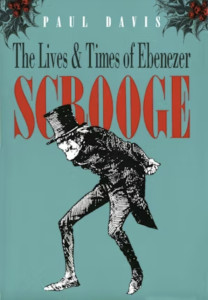 It’s been said that Charles Dickens, by writing A Christmas Carol was more responsible than anyone else for how we conceive Christmas as a holiday: a plump goose, decorated trees, gifts, giving to the poor — all can be found within A Christmas Carol. And the most memorable character that was created by Dickens in A Christmas Carol was Ebenezer Scrooge, a man whose very name has come to mean a truly miserly person, one completely and utterly lacking the proper holiday spirit.
It’s been said that Charles Dickens, by writing A Christmas Carol was more responsible than anyone else for how we conceive Christmas as a holiday: a plump goose, decorated trees, gifts, giving to the poor — all can be found within A Christmas Carol. And the most memorable character that was created by Dickens in A Christmas Carol was Ebenezer Scrooge, a man whose very name has come to mean a truly miserly person, one completely and utterly lacking the proper holiday spirit.
Even the very words that Scrooge said have entered our everyday lives. “Bah! Humbug!” is a common phrase today, more than a one hundred and fifty years after Dickens first took a goose-quill pen in hand and wrote them down for the very first time. Our very language would be a little poorer were it not for that rascal Scrooge.
Scrooge has come down to us over the past century and a half as the story has been told, retold, and adapted to each new generation of storytellers and their audiences. (Yes, you can read the actual story but how many of us have?) A Christmas Carol and Scrooge remain meaningful, as Paul Davis points out again and again in The Lives and Times of Ebenezer Scrooge, because they have been revised, adapted, condensed, expanded, turned into an opera, and modernized more than any other work in the English language (A Muppet Christmas Carol, anyone?). Certainly it’s had more versions in various media than any other printed work: first on stage, later in film, radio, and television.
Davis calls A Christmas Carol a “culture text, ” which is to say that the way a specific culture, say pre-World War I England, interprets the text shows us much about that culture. The Edwardian culture which cared more about children as children and not just as miniature adults was the first period to treat the text as primarily for children. The text of A Christmas Carol has indeed become a reflection of our values of childhood, charity, and tradition within the context of our communities. So read the book for its story of the ever-evolving story of Scrooge, or read the book for its insights on us, but either way do read it.
(Yale University Press, 1990)
